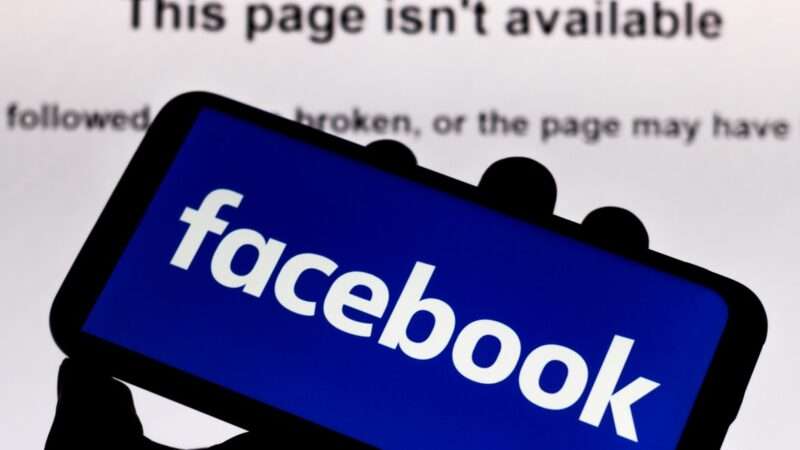

On Monday, the Supreme Court held oral argument in Murthy v. Missouri, a case in which the states of Missouri and Louisiana, and several private plaintiffs argue that the Biden Administration pressured social media firms into taking down posts they deemed to be "misinformation." Most of the justices emphasized that at at least some degree of coercion is required before courts can intervene to block the government's actions in such a case.
If government officials are merely resorting to persuasion, however vehement, that doesn't by itself violate the First Amendment. Indeed, such suasion is is normal behavior for public officials. As Justice Brett Kavanaugh put it, "my experience is[that] the United States, in all its manifestations, has regular communications with the media to talk about things they don't like or don't want to see or are complaining about factual inaccuracies." Kavanaugh was likely referring to his service as a White House official in the George W. Bush Administration. Justice Elena Kagan, also a former White House official, made a similar point:
[L]ike Justice Kavanaugh, I've had some experience encouraging press to suppress their own speech. You just wrote about editorial. Here are the five reasons you shouldn't write another one. You just wrote a story that's filled with factual errors. Here are the 10 reasons why you shouldn't do that again. I mean, this happens literally thousands of times a day in the federal government.
Cynics might argue that Kavanaugh and Kagan are biased by their own experience in government service. But this distinction between suasion and coercion is inherent in the text of the First Amendment. The Free Speech Clause doesn't restrict any and all government efforts to constrain speech. Rather it, bars government actions "abridging the freedom of speech" (emphasis added). If the state—or anyone—persuades a private entity to cut back on speech voluntarily, the freedom of speech has not been abridged, even if the total amount of speech may be reduced.
Louisiana Solicitor General Benjamin Aguinaga, arguing for the plaintiff states, suggested things are different in the case of social media firms, because here the government is urging them to cut back on the speech of "third parties" (users of their websites) rather than their own. But that's no different than if a government official I criticize on this blog contacts Reason and urges them to stop allowing me to post on its site because (they claim) my critiques of government policy are inaccurate and unfair. As long as there is no coercion, neither my freedom of speech nor Reason's would have been violated if Reason decides to bar me from the site. I only have a right to post here in so far as Reason lets me, and barring me (should they choose to do so) would be an exercise of their freedom speech.
This still leaves the question of whether various federal agencies did in fact coerce social media sites into barring speakers from their sites. As I wrote in a post about the Fifth Circuit decision the Court is reviewing here, I think the answer is likely "yes." But I admit there can be some difficult factual issues in cases like this. Clever officials my rely on veiled threats rather than open ones. Context is critical in assessing such situations.
Importantly, the Fifth Circuit found that officials did in fact threaten to punish social media firms that refused their demands:
[T]he officials threatened—both expressly and implicitly—to retaliate against inaction. Officials threw out the prospect of legal reforms and enforcement actions while subtly insinuating it would be in the platforms' best interests to comply. As one official put it, "removing bad information" is "one of the easy, low-bar things you guys [can] do to make people like me"—that is, White House officials—"think you're taking action."
That sure seems like coercion to me! Importantly, the people making these statements were officials whose superiors had the power to carry out at least some of these veiled threats. The evidentiary and interpretive issues here are—as noted in my previous post—similar to those that sometimes arise when organized crime organizations, like the Mafia, engage in extortion or protection rackets:
It's noteworthy that the record analyzed by the [Fifth Circuit] doesn't seem to include any examples of direct, unequivocal threats, such "If you don't take down X, I will inflict punishment Y." But as the court recognizes, context matters. If a representative of a Mafia boss tells a business owner to pay protection money, because "that's one of the easy, low-bar things you can do to make people like me and the Don happy," the context strongly suggests a threat of coercion. The same thing is true if a representative of a government agency with regulatory authority over Twitter or Facebook uses similar language to pressure those firms to take down material.
If it is indeed true that government officials "threatened…. to retaliate against inaction," then the Supreme Court should uphold the Fifth Circuit injunction against the defendant agencies, at least in so far as that injunction bars coercive pressure. As discussed in my previous post, I am far less convinced that the Fifth Circuit acted appropriately in also enjoining "significant encouragement" defined as "a governmental actor exercis[ing] active, meaningful control over the private party's decision." If the private party gave the governmental actor such control voluntarily, that may be bad media ethics, but it is not a violation of freedom of speech.
For those keeping score, my position here is exactly the same as in the Texas and Florida social media law cases argued before the Supreme Court last month. There, social media firms urged the Court to strike down state laws requiring them to host speech the firms object to. These laws clearly qualify as government coercion, and should be struck down. On the other hand, if Texas and Florida officials had merely sought to persuade Facebook and Twitter to host various types of right-wing speech voluntarily, there would be no violation of the First Amendment there either.
In sum, the First Amendment bars government from coercing social media firms to either post speech the firms object to (as Texas and Florida seek to do) or take down speech the firms would like to allow (as various federal agencies apparently did). On the other hand, both federal and state officials have every right to urge firms to put up or take down posts voluntarily.
Much of Monday's oral argument was devoted to questions of whether the plaintiffs had standing. My impression is that the justices could potentially go either way on that question, though I myself think at least some of the plaintiffs do have standing (because their speech on social media got restricted in response to coercive pressure brought to bear by government agencies). If the Court rules the private plaintiffs lack standing, it may be tough sledding for the state governments, as the Supreme Court has not been very friendly to creative state standing claims in recent years. I will leave the details of these standing issues to other commentators.
If the Court reaches the merits, I hope they make clear that coercion is the appropriate standard, but also that veiled, but credible threats of retaliation by government officials qualify as such coercion.
UPDATE: In the original version of this post, I accidentally attributed a statement by Justice Elena Kagan to Justice Ketanji Brown Jackson. I apologize for the mistake, which has now been corrected.
The post Court Should Focus on Coercion in Murthy v. Missouri appeared first on Reason.com.







